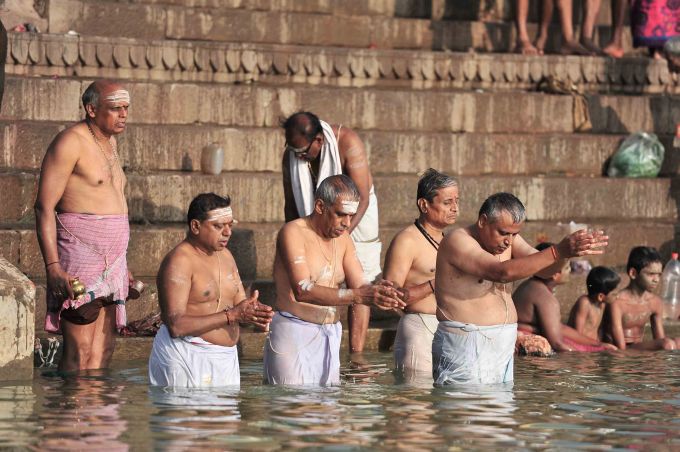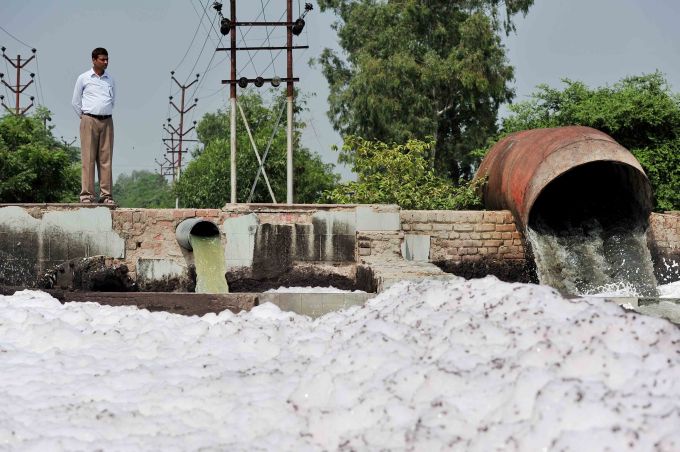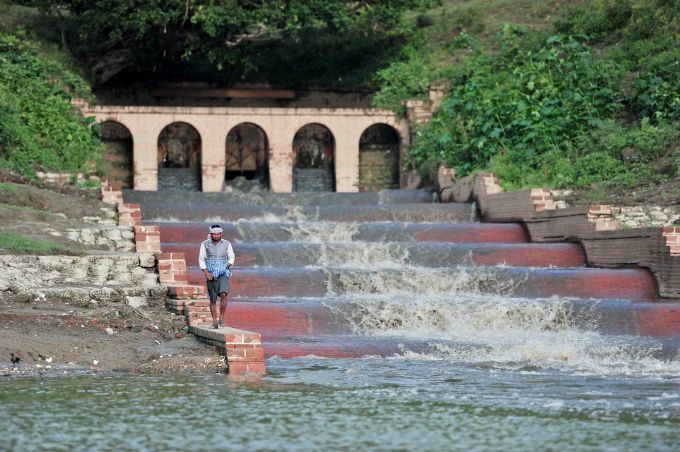New effort to help nurse India’s most sacred river back to health
IWMI is to help bolster the Indian government’s efforts to restore the country’s most revered river, the Ganges.
Stretching over 2,500km from its source in the Indian Himalayas to the Bay of Bengal in Bangladesh, the Ganges supports over 400 million people in India alone. Hindus worship it as “Mother Ganga”.

But large stretches of the river are extremely polluted, with huge volumes of untreated industrial effluent and toilet waste flowing into it. Demands for water from booming cities, energy and industrial sectors, and agriculture are also reducing the volume of water in the river. This contributes to the increasing concentration of pollutants in the water that harm the environment and threaten human health.

A new three-year agreement between IWMI and the National Mission for Clean Ganga (NMCG) – an agency of the Indian government – is part of a renewed effort by the government to nurse the river back to health. It paves the way for the two organizations to work together to try and tackle pollution and a range of other issues affecting the river basin more broadly, including climate change and floods. It is hoped the agreement will form the basis for long-term collaboration between IWMI and NMCG.
Speaking at the signing of the agreement in the Indian capital Delhi last week, Rajiv Ranjan Mishra, Mission Director of NMCG, said: [pullquote type=”pullquote1″ content=”There is a growing need for greater cooperation for tackling problems facing the Ganga…The research collaboration will help provide evidence-based solutions and innovative approaches to improve the health of the river.” quote_icon=”yes” align=”center”]There is a growing need for greater cooperation for tackling problems facing the Ganga…The research collaboration will help provide evidence-based solutions and innovative approaches to improve the health of the river.[/pullquote]
One key area of research by IWMI, through its work under the CGIAR Research Program on Water Land and Ecosystems, will be to determine the amount of waste – specifically fecal waste – flowing into the river, how it gets there, and feasible ways of managing it. This will include work to find out whether the collection, transportation and processing of toilet waste into compost is economically viable.
As many Indian cities struggle with poorly maintained wastewater treatment systems, IWMI scientists will also look at options for treating wastewater via “green filters”. One method involves diverting wastewater onto specially created wetlands and letting the natural process of filtration and absorption remove pollutants. Another uses large areas of sand to filter the water before it reaches the river.

Additional work will focus on ways to manage withdrawals of water from the Ganges for different uses, for example, industrial and agricultural. The IWMI team will then estimate how much water can be taken without adversely affecting other users and the environment more broadly, and what the costs of implementing these policies might be.
For a list of all the areas the agreement covers, see the box.
IWMI’s Asia Director Srabani Roy said: “We are excited to be contributing to the Government of India’s efforts in cleaning and rejuvenating the Ganga. With over a decade of research on the basin, IWMI and its partners in India have a vast amount of experience on issues affecting this complex trans-boundary river. With this experience, we hope to devise effective, long-term solutions for the sustainable management of the Ganga basin.
The Memorandum of Agreement between IWMI and the NMCG – an implementation agency of India’s National Ganga River Basin Authority – establishes the following areas of collaboration:
- Environmental flows
- Resource recovery and reuse
- Flood management
- Impact of climate change
- Institution and community participation
- Ecosystem services improvement
- Surface water resource and aquifer management
- Water quality management
Note: Since this article was published, the NMCG has appointed a new head of mission, Mr TVSN Prasad.

